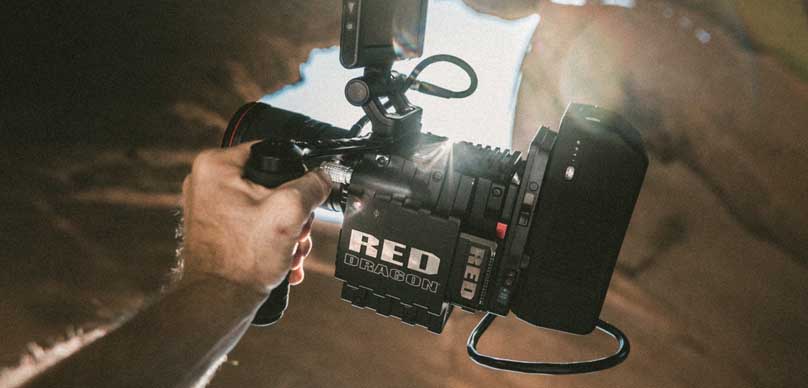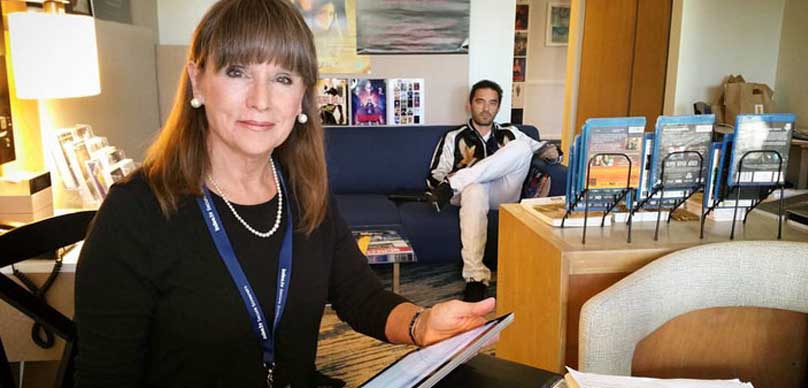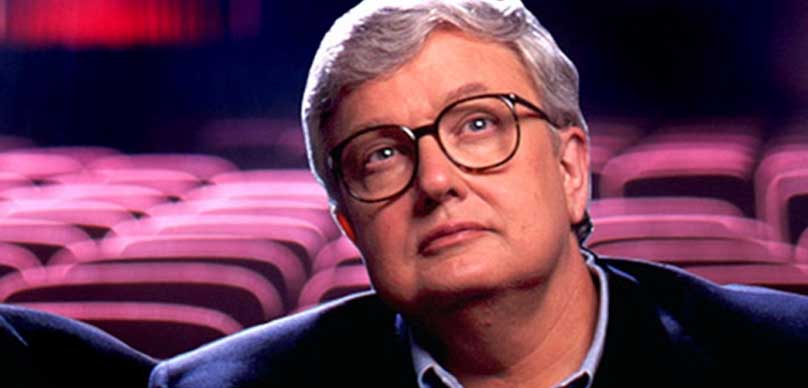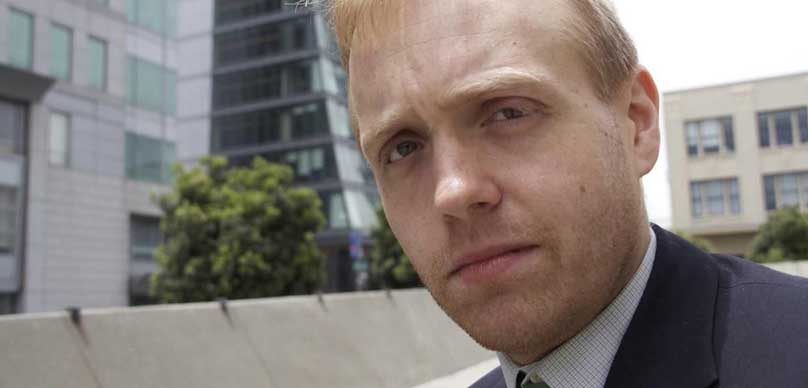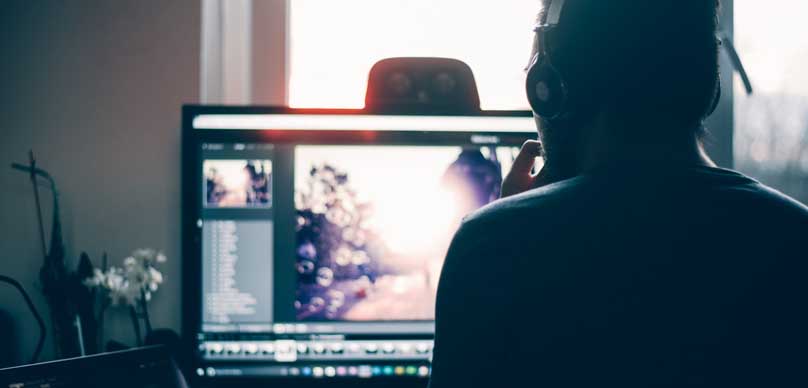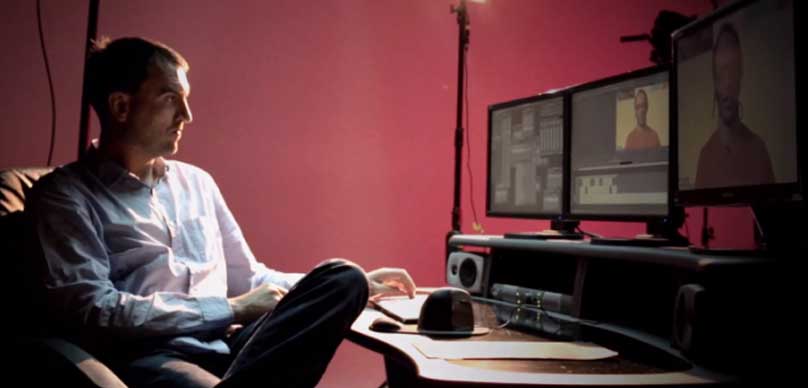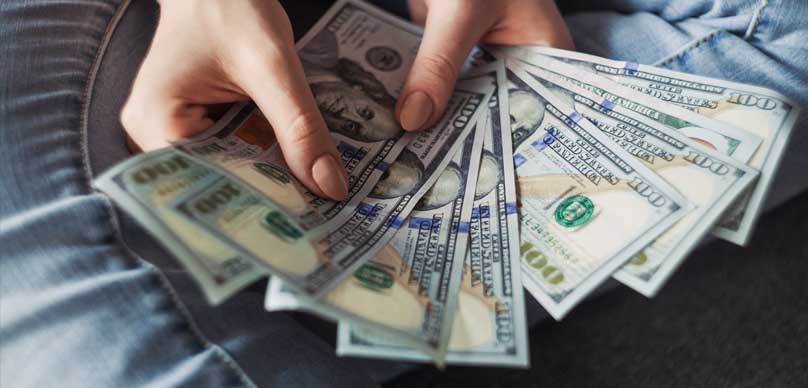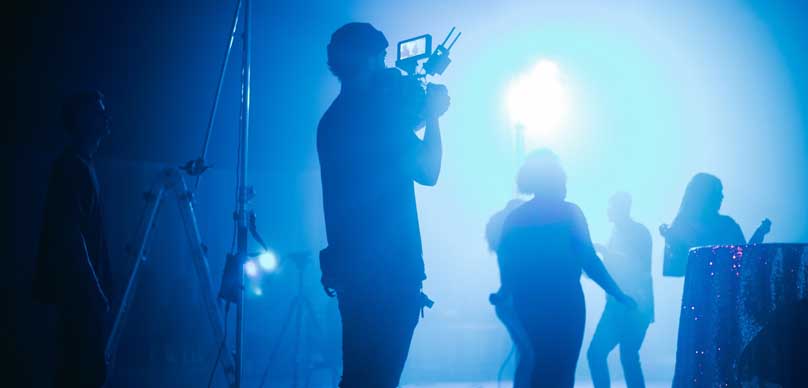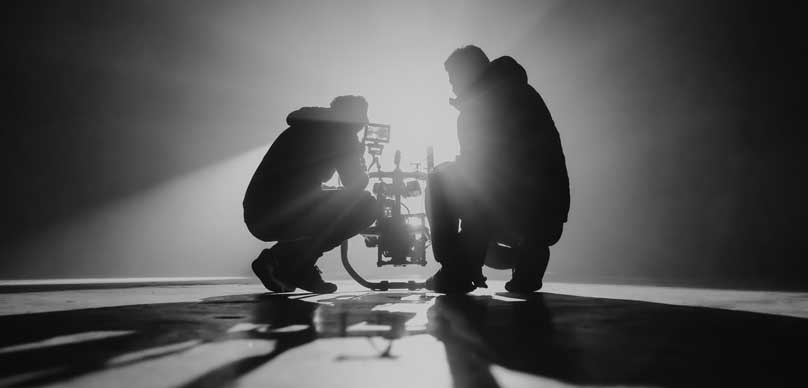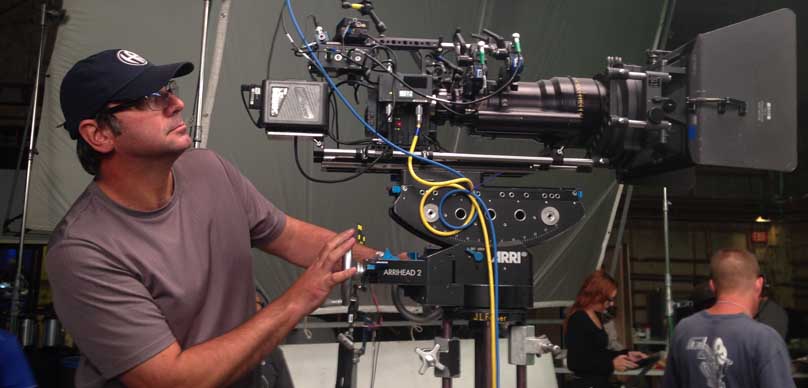Now before I get a bunch of hate mail please let me explain. I love cinematographers. You can’t make a movie without one and I don’t take their craft lightly. This is one of the reasons I wanted to do this podcast. Being a DP is by far one of the toughest positions on set. The pressure is immense.
With that said the explosion of low-cost cameras (RED Camera, Black Magic, Canon 5D, Nikon, iPhones, etc) and lighting gear has thrown a huge amount of “cinematographers” into the marketplace.
This podcast is a warning to young and inexperienced filmmakers not to hire, not only a director of photography but any top-level crew member solely because they own some of the latest cool gear.
This advice also goes for the sound department, editorial, lighting, visual effects and definitely color grading. When hiring any top-level positions on a film production it should be based on resume, demo reel, credits and/or reputation.
Related: Why filmmaker SHOULDN’T Shoot 4k
It takes a lot of time to learn a craft as complex as cinematography so don’t be fool by someone who happens to have the new 12K Camera that hit the market. Owning a RED Camera or equivalent doesn’t make you a cinematographer, years of working and learning your craft does. BTW, that 12K camera doesn’t exist yet just in case you were going to google it.
Now if you have two cinematographers in the running to shoot your first indie feature film, short film or film project and one has a full RED Camera (DRAGON) or Arri ALEXA package and the other one doesn’t then, by all means, hire the great DP that owns gear (only if you can handle the post workflow).
Listen to my podcast: Understand Post Production Workflow of DIE! for more on that.
Owning your own “kit” or gear is almost a must to work in the film business today. Hell, I own my own gear and I package deals all the time that would cost a ton if you would have to hire a colorist and a separate color grading rig.
All I’m saying is don’t hire a crew member just because of the gear he or she owns. You’ll thank me. Take a listen to this episode to hear the horror story that cost.
Right-click here to download the MP3
Alex Ferrari 0:00
Today is a an episode, I think that's long overdue. It's something that a lot of first time filmmakers make mistakes. And this is kind of in my series of pitfalls and things to kind of look out for. It just is just based on my experience as a filmmaker and as a post guy as well seeing it from other filmmakers point of view. But today's story, and today's topic, is something I learned the hard way at the very, very beginning of my career is not to hire a cinematographer, based on gear and gear alone. And that is a mistake a lot of first time filmmakers or filmmakers in general make because they get glassy eyed when a dp shows them a new red or I have an Alexa or this and that. So I want to talk to you a little bit about what a cinematographer is, and I'm sure I'll go over it really quickly. I'm sure most of you know what a cinematographer is. But I have the utmost respect for cinematographers and cinematography, it is a very difficult job. As a colorist, I see what they do. I see a lot of times people see the final image and they don't realize how difficult the day of the shoot was or that production didn't give them the lights that they need or their assistant cameras up that day or a million other things. But the DP gets blamed for it, especially in the color room because all you see is the final image. So it's the DPS job to make sure that final image looks as good as possible, regardless of the problems. But it's a lot of times a thankless job in many ways. It's great, they praise you when you do good and they destroy you when you do bad. So it's a tough job. So I have the utmost respect for cinematographers. Now with that said, the explosion of low cost camera gear and lighting gear has exploded the number of quote unquote cinematographers in the marketplace all around the world, not just Los Angeles, all around the world. I had this happen to me in Miami, but as well as other places as well around the world as well here in Los Angeles as well. So the problem is that nowadays people say well, if you bought a red, does that make you a dissonant photographer, because let's say I have $150,000, burning a hole in my pocket, and I go out and buy a full blown dragon system, full set of lenses, the best money can buy. And then, you know, I also have a $50,000 grip truck with every piece of lighting known demand, you, you would assume that someone who has purchased all this gear would know what they're doing. But time and time again, I've realized that that's not necessarily the case. So when you hire a dp, you must look at their work, you must interview them, you must understand it if they understand the kind of budget level you're at, because you can get an Academy Award winning dp but if they're used to playing with very big toys and your budget is $100,000 it's not a good fit. So that's a side note but I'm gonna tell you the story of what happened to me when I first first got in the business shot my very first big big thing I was shooting back in the early 90s I was shooting on film 35 millimeter film, believe it or not, and I knew this this company that happened to have film cameras, lighting, lighting kits, they had a whole business shooting a bunch of different things. They have a soundstage everything all in Miami and these guys wanted something new cool stuff on there real so I tell them look you know if you guys jump on board, you know I'll give you a copy of it for your real and you know, blah blah blah and we all kind of work together. But on the outset it looked like these guys knew what they were doing. I mean they had a full business doing it. What I didn't realize is the business that they were in was a kind of like, infomercial, kind of lighting and corporate video kind of stuff. They had no idea how to do a high end fashion, Nike commercial, which is what I was doing and I was doing actually did three commercials with them. And, and I was shooting 35 and they had 35 millimeter cameras. And it cost me about $50,000 to do my demo reel which was about three what ended up being five commercial spots. When I was all said and done, so I package them all out to do them in like five days and you know it tried to do it is, you know, affordably as possible. Because there was no digital anything back then it was like I was barely able to edit this on on an avid back in the day. But anyway, so we want to start shooting and I didn't get one dp, I got to DPS and now my crew was top notch I had a good producer who was working with me. And she basically inherited these, these the IPS and all their gear if she didn't choose them, she didn't know she was a seasoned professional. After day one, the crew that day one excuse me, our one the crew walked off the set from from from them because they said we're not working with these guys, these guys are idiots, they have no idea what they're doing. So the producer had to talk them back blah blah cuz the crew was actually a professional film crew. But these guys were complete idiots. And what happened is, if you ever are on a set with two DPS you need to run away. There's no reason for to DPS ever. at all, there is a dp there's a grapher that's that standard, but to actual Director of Photography is with core edits as director photography's both of them talking about how they're going to light the scene is absolutely insanity. The crew members, four years later after I worked with him and many other projects, they kept referring to them as the two monkey DPS. Because they would just jump all over the set. They used to use a light meter and they wouldn't light and they would check the light meter 50 times a minute to see how their lighting was and they would pull out 400 lights from their massive grip truck to light this scene. And the crew was like what are these guys doing? So I was pushing the envelope I was shooting very unique stock of film, I actually gave them a booklet that I created on how to shoot the stock a film it was called reversal film stock to get some very unique looks. And I because I I even felt that they didn't know they've never shot anything like this before. So I did all the research to have them understand it. And then I was on top of them a lot of times because I'm technical. So I was always like what's your what's your F stop? And you know, how is it it and what are you doing and all this kind of stuff. So fast forward to the entire the end of this thing. One of the commercials came out so so horribly, horribly bad that I literally burned the negative, I didn't give it to them. I actually went outside of my house opened up a big metal pan dumped to the 35 millimeter negative they're embarrassed it because I would never I never wanted to let anyone see this, let alone them get their hands on it. Because they they would have promoted it as their work. And I didn't want my name attached anything like that. So I had to then reshoot a bunch of stuff with another dp who was actually a real dp, who had also had his own camera, but I saw his work and he came highly recommended and so on and so forth. But that experience taught me that you never hire a cinematographer. Based on the gear that he brings. The gear that he brings is a huge plus nowadays, these owner operators are becoming the norm, because you can hire a dp who owns a red camera, and that's just part of his day rate, or owns an Alexa or owns his own lens packages. And those are those are costs that you don't have to incur. And the DP is doing that because that way he gets more work or she gets more work. And that's wonderful. And there's a lot of DPS. You know, I did I did an interview with my good friend Suki who's in the ISC amazing cinematographer, he owns his own Alexa camera, you know, because he wants to own his own Alexa camera and it makes him a more valuable dp because he has his own camera. Because now every every almost every dp has his own packages, even the even the biggest DPS will have you know, I was talking to get model Toros DPS, right hand man who's a good friend of mine, and they they own 20, Alexa's and, you know, 15 or 20 reds and, and they rent it out. And it's just part of their business plan now so there's nothing wrong with a dp that owns their own gear, but you can't hire them based solely upon the gear that they bring to the table. And that goes with anybody with anything a sound guy that has all the greatest gear. I've had bad experiences with that as well. You know, you can't hire people based on the gear that they bring, you have to make sure that they can do the job, right. I would rather hire someone who doesn't have their own gear who could do the job right and rent the gear somehow. or hopefully find someone that has both together. So I'm a word of warning. don't hire people based on their gear, look at their work, interview them. Ask for references. Because I'm telling you, you will get burned. You will get burned badly and I did it on A small, you know, commercial shoot, you know, $50,000 not small to me, but comparatively to a million dollar movie, half a million dollar movie and or feature, you know, smaller I did 32nd spots. So if I would have done a full short film with them been with these guys for three, four weeks on a feature, I would have shot somebody, literally I think and I think the, the crew would have done the job for me. So don't hire monkey DPS. No, I'm joking. You know, just just like I said before, hire people based on their merit and on their, on their skill on their reel and on the personality if they mix with you or not, because the DP is your right hand guy, as a director as a filmmaker. If they, if you don't mix with your dp, it's gonna be a long, long, long, long shoot. So make sure and it's kind of like dating, you know, before you jump in to marriage, you should date them, talk to them, really get to know them, make sure you're making the right decision because it is a relationship that you will have an intense relationship you will have for the duration of the shoot, whether that be a few days, which is not that big of a deal. But if you're on a feature, could be extremely detrimental to your final product. Or absolutely beneficial if you hire the right person. Because a dp can also save your butt. If you're not a technical director and compose shots for you and you can handle the actors and things like that there's a lot of things a good dp brings to the table. And it's imperative to have a good dp when shooting a feature film. So I hope this story word word of warning helped you guys I hope that you will hire people based on their merit and not on the gear that they bring to the table no matter how beautiful the gear is. Don't care what new Reddit is don't care what Alexa it is don't care. Anything and Same goes for posts just because a guy owns a full blown color system, make sure he does he knows what he's doing. Make sure he's colored a bunch of movies, make sure he understands how to deal with your kind of file format. I mean, it goes with every crew remember that brings gear or has gear to bring to the table. Alright, so I hope it was helpful to you guys. Thanks for listening. Remember, head on over to iTunes. You could just go to indie film, hustle, calm forward slash iTunes. And leave me an honest review on the podcast. It really helps us out a lot to get these reviews and helps us get the word out on indie film hustle. So thanks again for your time guys. Keep hustling. Keep making movies, don't let your dream fall to the wayside. You got to keep going no matter what. Alright, thanks again guys. Talk to you soon.
Sign up to receive email updates
Enter your name and email address below and I'll send you periodic updates about the podcast.
YOUTUBE VIDEO
LINKS
SPONSORS
- Bulletproof Script Coverage – Get Your Screenplay Read by Hollywood Professionals
- Audible – Get a Free Filmmaking or Screenwriting Audiobook
- Rev.com – $1.25 Closed Captions for Indie Filmmakers – Rev ($10 Off Your First Order)

